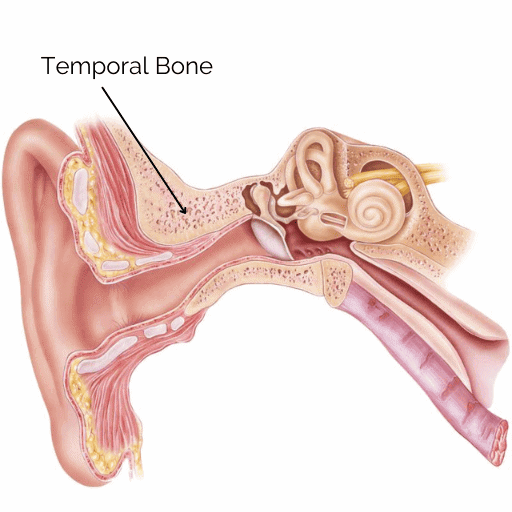Perhaps at the very beginning stages of hearing loss, an easier descriptive word is hearing difficulties. Hearing loss is rarely complete deafness? Have you ever thought about the effects of a weak sound energy stimulation reaching the brain?
Hearing loss occurs on a spectrum: mild, moderate, severe, and every decibel in between which is why you may be surprised to learn about 5 reasons why hearing loss can begin. There are temporary reasons a weakness in the hearing system begins. And, much like you need physical therapy for your body, I think of auditory integration training as physical therapy for your hearing system.
If I mentioned all the possible reasons for hearing loss, I would leave you feeling very overwhelmed. Thus, I am sharing 5 of the most surprising reasons hearing loss begins in infants, toddlers, and children. There are also a few reasons why hearing loss begins in those who have had a concussion or dental surgery. After so many of my clients with autism, ADD, ADHD, and dyslexia shared their medical history, I began to read the research that is now freely shared on my videos and web pages.
The Challenges of a Diagnosis
As I worked with clients, I learned how the hearing system is affected by what we eat, the cranial bones including our jaw, and the health of our ear, nose, and throat. Events at birth or after birth can decrease your ability to hear for a short while, for months, or even years. There are some genetic conditions that increase your risk for hearing loss to begin after birth like Down Syndrome, William’s Syndrome, autism, or simply having a short neck.
The challenge is to consider the diagnosis while focusing on evaluating the medical issues known to weaken the hearing system. Since the inner ear’s vestibular system stimulates the visual system, a visual processing exam is also important.
A Kindergartener’s Story: Surprising Reasons His Behaviors Were Due to Hearing Loss & Not Autism
I fondly remember working with a kindergarten student who enjoyed playing with his friends outside. However, once inside the volume of a friend’s voice often caused him to exclaim, “You are hurting my ears!” Sadly, he even had to leave his own birthday party, because the sound of everyone talking overwhelmed him. He complained that his ears hurt.

With his mother’s help, we identifies the following behavioral characteristics:
- Severe sound sensitivities
- Difficulty waking up in time for school
- Emotional distress
- Listening difficulties
- Learning struggles
- Avoidance of handwriting
- Fatigue while reading
The completion of my Moore Auditory-Visual Questionnaire (MAvQ) helps me know what questions to ask clients to uncover the reasons behind their behaviors. Then, referrals for specific hearing and visual processing evaluation often explain behavioral characteristics from a medical perspective.
When you register for a MAvQ, you receive prequestionnaire auditory and visual activities. These activities help you know what to observe and how to observe behaviors associated with sound intolerance, hearing loss, auditory processing difficulties, and visual processing difficulties. Once you understand your loved one’s behaviors, it is much easier to meet their needs by changing your response.
5 Surprising Reasons Hearing Loss Begins
1. Fluid With or Without an Ear Infection Creates a Temporary Hearing Loss
He did not have an ear infection. However, fluid was found in his middle ear, which causes eustachian tube inflammation. Unfortunately, poor ear health results in mild hearing loss that can linger much longer than you realize.
For example, researchers found that ear infections distort sounds and diminish hearing for up to six months. Before you know there is an ear infection, fluid distorts sounds. During ear infections, there is fluid and eustachian tube inflammation, which increases hearing loss. Once the ear infection is gone, it takes more time for all fluid to leave. Researchers were surprised to learn that it can take months for the inflammation in eustachian tubes to go away and make speech once again sound clear and crisp.
2. Environmental allergies, Food Allergies, and Intolerances Create a Temporary Hearing Loss
He was found to have an allergy to eggs, milk, gluten, and nuts.
Environmental allergies, food allergies, or sensitivities all affect the health of the hearing system. For example, your loved one can have fluid in their ear without an ear infection. How? Because allergies cause eustachian tube inflammation, which distorts sounds. Also, fluid can build up decreasing your ability to hear.
There are seasonal allergies and indoor allergies that are constant. Thus, they are easier to investigate. However, what you eat varies. Thus, food allergies and intolerances cause fluctuation in behaviors. If your loved one’s behaviors fluctuate, I encourage you to use our food elimination Tracker.

Our food elimination tracker starts with the 6 foods that contribute to eustachian tube inflammation. These 6 foods increase the risk of congestion, fluid in the ear, and ear infections. Dr. William Davis shares in his book, Wheat Belly, how an unknown food intolerance, like gluten, causes inflammation in the brain.
Chronic inflammation in a developing brain is a surprising reason hearing loss begins.
3. Enlarged Adenoids Creates Hearing Loss
Very large adenoids were negatively affecting his ability to hear while awake and while asleep. A clue that adenoids are too large is snoring, which increases the risk of sleep apnea. Lack of proper breathing while asleep reduces oxygen to the brain. Oxygen is critical for brain development and energy. Do you wake up tired without energy?
While sleeping, enlarged adenoids cover up your Eustachian tubes causing fluid to build up in your middle ear. Trapped fluid increases the risk of congestion, ear infections, and sore throats.
While awake, enlarged adenoids block your Eustachian tubes disrupting the pressure in your middle ear leaving you feeling uncomfortable. It is like the discomfort you feel in your ears when riding in a plane that is taking off or landing.
Unfortunately, a delay in removing enlarged adenoids contributes to the beginning of central auditory processing deficits. A surprising reason a hidden hearing loss. begins.
4. Temporal Bone Density Affects Strength of Sound Energy Stimulation

This little kindergartener had no concerns with this surprising reason hearing loss begins.
The temporal bones around your ears affect your hearing. Your inner ear’s vestibular receives stronger stimulation from your temporal bones when compared to your ear canal. Sound energy travels along your skull bones to the temporal bones around your ear stimulating your vestibular chambers and cochlear.Consider these questions:
- Are the temporal bones fully developed, dense?
- Since temporal bones are part of the skull, they must grow and become denser as your infant grows.
- Are the temporal bones in proper alignment?
- Is the roof of your child’s mouth, the palette, soft?
- A genetic high risk of a soft palette exists when there is a double uvula that looks like an upside-down heart in the back of their throat.
5. Teeth, Dental Health
Amazingly, even your teeth stimulate your hearing system. Sound travels along the roof of your mouth and jawbone.
Consider these questions:
- Are your teeth healthy?
- An infection can inflame your eustachian tubes.
- When you open your mouth, does your jaw click?
- A jaw misalignment can reduce blood flow to your ear.
- Do you feel tenderness where your jaw meets your ear, your TMJ joint (temporo-mandibular joint)?
- A heart shape uvula in the back of your throat indicates decreased bone in the roof of your mouth, a soft palate.
Importance of an Auditory–Visual Training Protocol When There are Surprising Reasons Hearing Loss Begins
As I worked with my clients guiding them through their medical evaluation(s), medical treatment improved eustachian tube health. Clients shared they had clearer and louder hearing.
For example, this little boy’s sound intolerance was much worse after the removal of his adenoids. Why? Because the removal of his adenoids enabled strong sound energy to suddenly move through a healthy middle ear and fully stimulate his brain. His brain was accustomed to a much lower level of sound. This would be like listening to the radio on a low volume all the time and then suddenly turning the volume up to high. The louder volume would sound jarring and uncomfortable. Thankfully, I strengthen his hearing system before his surgery and then again later.
Despite sound tolerance improvements, he continued to struggle academically. I completed some observation activities, which I now share in my booklet, Moore Visual Observation Activities. A developmental optometrist confirmed the presence of visual processing difficulties causing his vision to blur and double.
I was not surprised to find visual processing difficulties, because the inner ear’s vestibular system coordinates head, neck, and eye movements. The complexity of your hearing system is astonishing.
For example, What You Hear Affects What You See.
The Kindergarten’s Story into The Teen Years
Thankfully, countless parents gave me their blessing to track their child’s progress. In fact, that Kindergarten child is now a teenager.
To this day I am amazed and thankful that a child at risk for autism lost his diagnosis.
My work with this Kindergarten age child and countless others taught me much about the importance of ear, nose, and throat health. My search for answers to improve their quality of life resulted in the development of the Moore Auditory-Visual Training Protocols.
Importance of Medical-Based Auditory Integration Training
Clients with enlarged adenoids experienced hearing loss related behaviors associated with sound sensitivities like poor attention skills, struggling to learn, lack of energy, and sore throats in the mornings. I work with you to develop documents supporting your need for medical-based assessments.
For example, a few of my clients passed their sleep study test. However, continuous congestion and sore throats justified the removal of adenoids. Upon removal, pockets of infection were found on their adenoids known to cause inflamed eustachian tubes which decreased their hearing.
Benefits of Auditory Integration Training
Improving ear, nose, and throat health restores your ability to hear. However, you need Auditory Integration Training that provides therapeutic stimulation strengthening auditory neural pathways which then allow your ears to work more strongly together.
After Berard-Based Auditory Integration Training, clients experience improvements in sound tolerance, attention, expressive speech, and socialization.







0 Comments